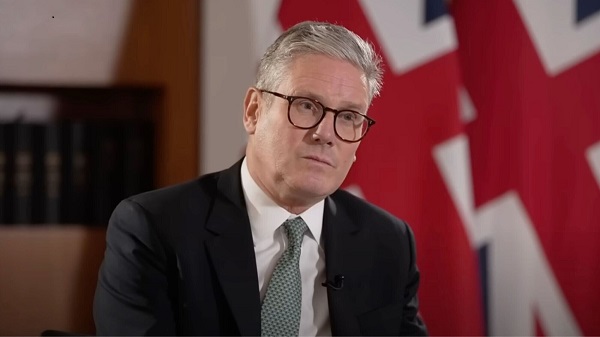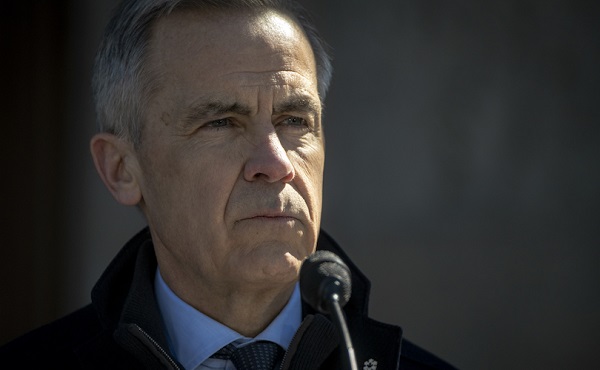2025 Federal Election
Inside Buttongate: How the Liberal Swamp Tried to Smear the Conservative Movement — and Got Exposed


 Dan Knight
Dan Knight
Two staffers bragged about their op in an Ottawa bar. No one got fired. Liberal party denies involvement.
Let’s stop pretending. Let’s not sanitize this. Let’s not call it a “prank” or a “gag gone too far.” This wasn’t some intern-run-amok moment of political comedy.
This was a coordinated smear campaign. And it tells you everything you need to know about the people running the Liberal Party of Canada under Mark Carney.
Here’s what actually happened — not the spin, not the statement, not the sugarcoating.
On Friday night, in Ottawa — the beating heart of the Canadian political swamp — Two Liberal Party staffers — highly-paid operatives, not summer interns fetching lattes — snuck into a conservative political conference, the Canada Strong and Free Networking Conference. What did they do? Did they show up to learn something? Ask questions? Challenge policy?
No. They planted buttons. Buttons. Little propaganda trinkets designed to mock Pierre Poilievre and his supporters — and to equate everyday conservatives with American-style insurrectionists.
Why? Because that’s all the Liberal brain trust can come up with in 2025. That’s their campaign strategy: petty sabotage with novelty pins and hope the press catches wind.
This wasn’t subtle. It wasn’t accidental. They distributed these buttons in places they knew attendees would find them. It was brazen political sabotage. And then — here’s the kicker — they went to a bar, D’Arcy McGee’s, just a stone’s throw from Parliament Hill, and bragged about it.
This wasn’t behind closed doors. It wasn’t whispered in secret. It was out loud, at a public bar, with other Liberal staffers — including war room personnel — present. One of the staffers involved even identified himself as part of the opposition research team. He said it, plainly, within earshot of a journalist.
He knew he was talking to the press. He didn’t care. Because this is the kind of culture that now exists inside the Liberal Party — smug, unaccountable, totally convinced the rules don’t apply to them.
And what happened when he realized CBC was going to report it?
He backtracked. He lied. He denied it. Because that’s the second half of the Liberal playbook: if exposed, deny everything. Gaslight the public. Blame the other side. And hope the media plays along.
But — to CBC’s credit — they didn’t this time. For once, they did their job.
So what did the Liberal Party do?
Statement From Bryan Passifiume @BryanPassifiume
Let’s not waste time pretending this statement is anything other than what it is: a prewritten excuse for premeditated political sabotage — dressed up in hollow slogans about “positive campaigning.”
“This is the most important election in a generation…”
Yes, and your response to that historic moment is to sneak into your opponent’s conference and scatter cheap smear buttons like you’re running a middle school prank war. They invoke the economy as if that justifies juvenile political sabotage. What does placing fake “Stop the Steal” buttons at a conservative event do to lower grocery prices or stop carbon taxes from hollowing out rural communities?
Answer: nothing.
“It’s been reported that Liberal campaigners had created buttons poking fun… which regrettably got carried away.”
Hold it right there.
Let’s not pretend this was spontaneous. These buttons didn’t magically appear in the hands of two bored staffers looking for something to do. They had to be designed, produced, and delivered. That takes time. That takes planning. That takes sign-off from someone higher up. This wasn’t some joke that “got carried away” — it was a deliberate, coordinated, premeditated attack.
This is not what “regrettably got carried away” looks like. This is what an organized political dirty trick looks like.
“While it is worth noting that many materials being shown online have nothing to do with members of our team…”
Nothing to do with members of our team… Did they really just run with that. Beacuse this didn’t happen in a vacuum. It happened in Ottawa, the swampiest part of Canada, where everyone knows everyone. The press, the staffers, the strategists, the spin doctors — they all eat at the same bars. They all go to the same parties. They all protect each other when it counts.
So when the CBC says, “a Liberal staffer identified himself,” let’s be real: they already knew who he was. That’s how it works in Ottawa. If you’re in the bubble, you’re protected. Unless — like now — it becomes politically impossible to ignore.
To the CBC’s credit, they did report it. And for that, they deserve a rare tip of the hat. But let’s not pretend this was some anonymous tip they had to dig for. This scandal practically unfolded over cocktails in front of their own reporters. This wasn’t Woodward and Bernstein. This was a Liberal staffer too arrogant to realize he was caught.
And still, after all that, the Liberal Party thinks you’re dumb enough to buy their story.
That you’ll believe this was all just a “prank.”
That no one at the top knew.
That the campaign of Mark Carney — the man selling himself as the adult in the room — is shocked, just shocked, that his team would stoop to this.
This was premeditated. This was planned. And the only reason it’s “regrettable” now is because they got caught.
So I’ll ask the question again: Do you think we can do better than this?
Because the answer is yes. And come April 28, Canadians might finally show the Liberal Party what accountability actually looks like.
Subscribe to The Opposition with Dan Knight .
For the full experience, upgrade your subscription.
Invite your friends and earn rewards
2025 Federal Election
Post election report indicates Canadian elections are becoming harder to secure

Chief Electoral Officer Stéphane Perrault highlights strong participation and secure voting, but admits minority politics, rising costs, and administrative pressures are testing the system’s limits.
Monday in Ottawa, Stéphane Perrault, Canada’s Chief Electoral Officer, delivered a long press conference on April’s federal election. It was supposed to be a victory lap, record turnout, record early voting, a secure process. But if you listened closely, you heard something else: an admission that Canada’s election machinery is faltering, stretched thin by a system politicians refuse to fix.
Perrault touted the highest turnout in 30 years, 69 percent of eligible voters, nearly 20 million Canadians. Almost half of those ballots were cast before election day, a dramatic shift in how citizens take part in democracy.
“Twenty years ago, less than 7% voted early. This year, nearly half did,” Perrault told reporters. “Our system may have reached its limit.”
That’s the core problem. The system was built for one decisive day, not weeks of advance voting spread across campuses, long-term care homes, mail-in ballots, and local Elections Canada offices. It’s no longer a single event; it’s an extended process that stretches the capacity of staff, polling locations, and administration.
Perrault admitted bluntly that the 36-day writ period, the time between when an election is called and when the vote happens, may no longer be workable. “If we don’t have a fixed date election, the current time frame does not allow for the kind of service preparations that is required,” he said.
And this is where politics collides with logistics. Canada is once again under a minority government, which means an election can be triggered at almost any moment. A non-confidence vote in the House of Commons, where opposition parties withdraw support from the government, can bring down Parliament in an instant. That’s not a flaw in the system; it’s how parliamentary democracy works. But it leaves Elections Canada on permanent standby, forced to prepare for a snap election without knowing when the writ will drop.
The result? Sixty percent of voter information cards were mailed late this year because Elections Canada couldn’t finalize leases for polling stations on time. Imagine that, more than half the country got their voting information delayed because the system is clogged. And that’s when everything is supposedly working.
The April election cost an estimated $570 million, almost identical to 2021 in today’s dollars. But here’s the kicker: Elections Canada also spent $203 million just to stay ready during three years of minority Parliament. That’s not democracy on the cheap. That’s bureaucracy on retainer.
Perrault admitted as much: “We had a much longer readiness period. That’s the reality of minority governments.”
No Foreign Interference… But Plenty of ‘Misinformation’
Canada’s top election official wanted to make something perfectly clear: “There were no acts of foreign interference targeting the administration of the electoral process.” That’s the line. And it’s a good one… reassuring, simple, the kind of phrase meant to make headlines and calm nerves.
But listen closely to the wording. He didn’t say there was no interference at all. He said none of it targeted the administration of the vote. Which raises the obvious question: what interference did occur, and who was behind it?
Perrault admitted there was “more volume than ever” of misinformation circulating during the 2025 election. He listed the greatest hits: rumors that Elections Canada gives voters pencils so ballots can be erased, or claims that non-citizens were voting. These are hardly new — they’ve appeared in the U.S. and in Europe too. The difference, he said, is scale. In 2025, Canadians saw those narratives across more channels, more platforms, more communities than ever before.
This is where things get interesting. Because the way Perrault framed it wasn’t that a rogue actor or a foreign intelligence service was pushing disinformation. He was blunt: this was a domestic problem as much as anything else. In his words, “whether foreign or not,” manipulation of information poses the “single biggest risk to our democracy.”
Perrault insists the real danger isn’t foreign hackers or ballot-stuffing but Canadians themselves, ordinary people raising questions online. “Information manipulation, whether foreign or not, poses the single biggest risk to our democracy,” he said.
Well, maybe he should look in the mirror. If Canadians are skeptical of the system, maybe it’s because the people running it haven’t done enough to earn their trust. It took years for Ottawa to even acknowledge the obvious , that foreign actors were meddling in our politics long before this election. Endless commissions and closed-door reports later, we’re told to stop asking questions and accept that everything is secure.
Meanwhile, what gets fast-tracked? Not a comprehensive fix to protect our democracy, but a criminal investigation into a journalist. Keean Bexte, co-founder of JUNO News, is facing prosecution under Section 91(1) of the Canada Elections Act for his reporting on allegations against Liberal candidate Thomas Keeper. The maximum penalty? A $50,000 fine and up to five years in prison. His reporting, incidentally, was sourced, corroborated, and so credible that the Liberal Party quietly dropped Keeper from its candidate list.
If people doubt the system, it isn’t because they’re gullible or “misinformed.” It’s because the government has treated transparency as an afterthought and accountability as an inconvenience. And Perrault knows it. Canadians aren’t children to be scolded for asking questions, they’re citizens who expect straight answers.
But instead of fixing the cracks in the system, Ottawa points the finger at the public. Instead of rebuilding trust, they prosecute journalists.
You don’t restore faith in democracy by threatening reporters with five years in prison. You do it by showing, quickly and openly, that elections are beyond reproach. Until then, spare us the lectures about “misinformation.” Canadians can see exactly where the problem lies, and it isn’t with them.
The Takeaway
Of course, they’re patting themselves on the back. Record turnout, no servers hacked, the trains ran mostly on time. Fine. But what they don’t want to admit is that the system barely held together. It was propped up by 230,000 temporary workers, leases signed at the last minute, and hundreds of millions spent just to keep the lights on. That’s not stability. That’s triage.
And then there’s the lecturing tone. Perrault tells us the real threat isn’t incompetence in Ottawa, it’s you, Canadians “sharing misinformation.” Excuse me? Canadians asking questions about their elections aren’t a threat to democracy, they are democracy. If the government can’t handle people poking holes in its story, maybe the problem isn’t the questions, maybe it’s the answers.
So yes, on paper, the 2025 election looked like a triumph. But listen closely and you hear the sound of a system cracking under pressure, led by officials more interested in controlling the narrative than earning your trust. And when the people running your elections think the real danger is the voters themselves? That’s when you know the elastic isn’t just stretched. It’s about to snap.
Subscribe to The Opposition with Dan Knight .
For the full experience, upgrade your subscription.
2025 Federal Election
NDP’s collapse rightly cost them official party status

This article supplied by Troy Media.
 By Michael Taube
By Michael Taube
Official party status requires 12 seats. The NDP got seven. End of story
Rules are rules.
That, in a nutshell, is why the NDP wasn’t granted official party status in the House of Commons on Monday. Prime Minister Mark Carney and the
Liberals, to their credit, made the right decision.
Let’s examine why.
The 1963 Senate and House of Commons Act passed an amendment that gave an annual allowance to party leaders other than the prime minister and
leader of the Opposition. In doing so, the Canadian government had to establish what constitutes a “political party.” The definition they came up with was a sensible one: it had to have a “recognized membership of 12 or more persons in the House of Commons.”
This important amendment is still used today.
The NDP fell from 24 to a paltry seven seats in last month’s federal election. (There are a total of 343 seats in the House of Commons.) They finished with 1,234,673 votes, or 6.29 per cent, which was behind the Liberals, Conservatives and Bloc Québécois. Party leader Jagmeet Singh, who had represented the former Burnaby South riding since 2019, finished a distant third in the newly created Burnaby Central riding and resigned.
The NDP’s seven seats is well below the 12-seat requirement needed for official party status. This means Canada’s socialist alternative won’t be able to ask questions in the House of Commons and will lose out on money for research purposes.
Or, to put it another way, they’re plumb out of luck.
Hold on, some people said. They pointed out that the NDP’s seat count and popular vote only plummeted because many progressive voters backed Carney and the Liberals as the best option to counter U.S. President Donald Trump and his tariffs. They felt that the NDP’s long history as a champion for unions and the working class should count for something. They suggested there should be an exception to the rule.
Guess what? They’re wrong.
This is the worst election result in the party’s history. Even its predecessor, the Co-operative Commonwealth Federation (CCF), did marginally better in its first campaign. The CCF won seven out of 245 seats—and earned 410,125 votes, or 9.31 per cent—in the 1935 election. Party leader J.S. Woodsworth, who had represented the riding of Winnipeg North Centre as an Independent Labour MP since 1925, comfortably held his seat.
Meanwhile, this won’t be the first time they’ve ever lost official party status.
The NDP dropped from 43 to nine seats in the 1993 election. It was a dismal showing, to say the least. There was a suggestion at the time that then-party leader Audrey McLaughlin, the first woman to lead a party with political representation in Canada’s House of Commons, deserved a better fate. While the NDP certainly came closer to achieving the 12-seat requirement in this particular election, Prime Minister Jean Chrétien and the Liberals decided against granting them official party status.
Why? As I mentioned earlier, rules are rules.
Then again, British pilot Harry Day notably told his fellow flying ace Douglas Bader in 1931, “You know my views about some regulations—they’re written for the obedience of fools and the guidance of wise men.”
Does this mean that individuals and organizations who follow rules are, in fact, fools? Not at all. While certain rules in a liberal democratic society can range from slightly questionable to utterly ridiculous, they’re usually put in place for a specific purpose.
In the case of the House of Commons, it’s to ensure that a bar has been set with respect to political representation. Is 12 seats the right number? That’s difficult to say. It certainly prevents small protest parties and one-issue parties that unexpectedly win a tiny number of seats in an election from acquiring power and status right off the bat. They need to win more seats and grow in size and stature to reach a point of respectability. Most of them never reach this point and disappear while others float in a constant state of mediocrity like the Green Party of Canada. ’Tis the nature of the political beast.
One final point. If Singh and the NDP had reached double digits in total number of seats in 2025, a solid case could have been made in favour of official party status. If they had finished with 11 seats, it would have almost been a lock. Neither scenario ultimately materialized, which is why Carney and the Liberals did exactly what they did.
Michael Taube is a political commentator, Troy Media syndicated columnist and former speechwriter for Prime Minister Stephen Harper. He holds a master’s degree in comparative politics from the London School of Economics, lending academic rigour to his political insights.
Troy Media empowers Canadian community news outlets by providing independent, insightful analysis and commentary. Our mission is to support local media in helping Canadians stay informed and engaged by delivering reliable content that strengthens community connections and deepens understanding across the country.
-
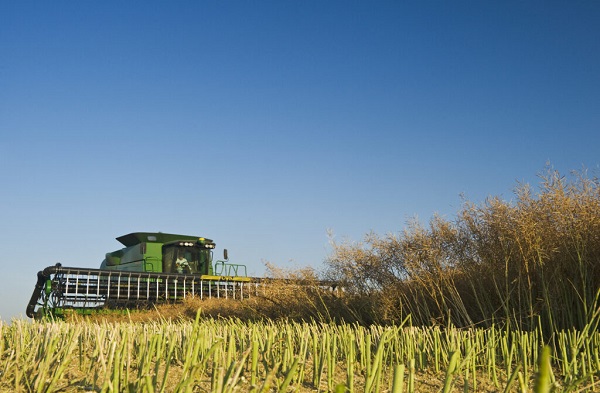
 Agriculture12 hours ago
Agriculture12 hours agoOttawa’s EV Gamble Just Cost Canola Farmers Billions
-

 Business2 days ago
Business2 days agoEnergy leaders send this letter urging Prime Minister Mark Carney to unlock Canada’s resources
-
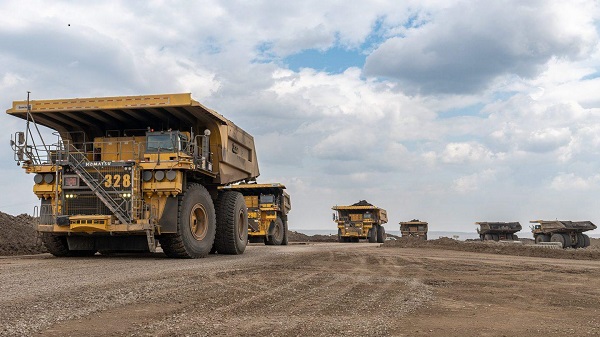
 Alberta2 days ago
Alberta2 days agoHow Alberta is moving to speed up oil sands reclamation with mine water treatment
-
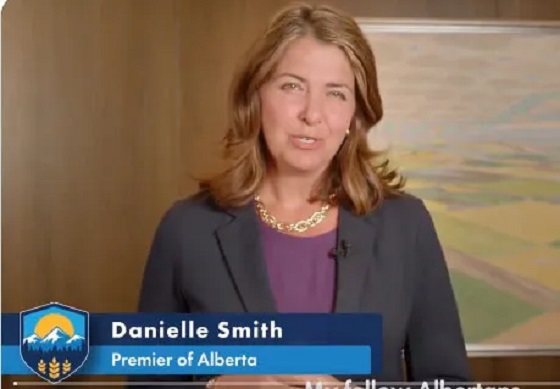
 Alberta2 days ago
Alberta2 days agoNo Permission Required: Alberta Will Protect Its Daughters
-

 Alberta2 days ago
Alberta2 days agoPremier Smith directs ministers to grow economy and create jobs
-
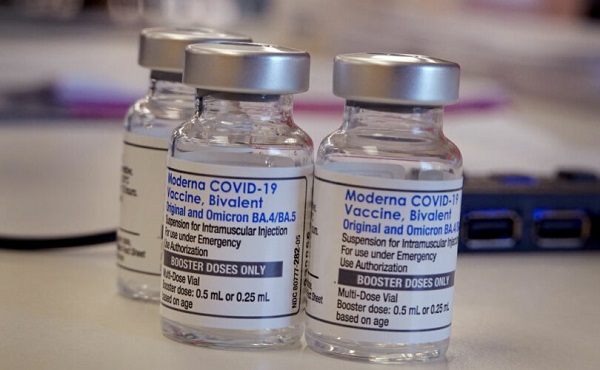
 COVID-192 days ago
COVID-192 days agoQuebec ends free distribution of COVID shots
-
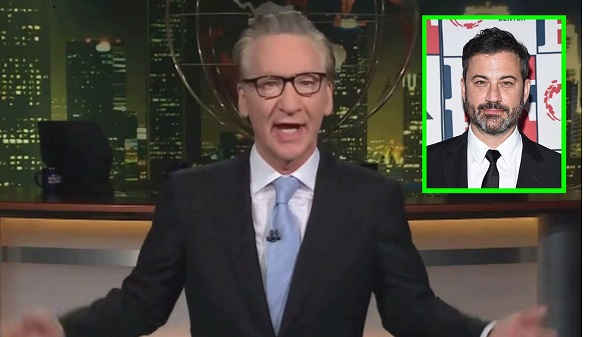
 Opinion2 days ago
Opinion2 days agoBill Maher Notices a Major Flaw in Jimmy Kimmel’s Claim About Charlie Kirk’s Shooter
-
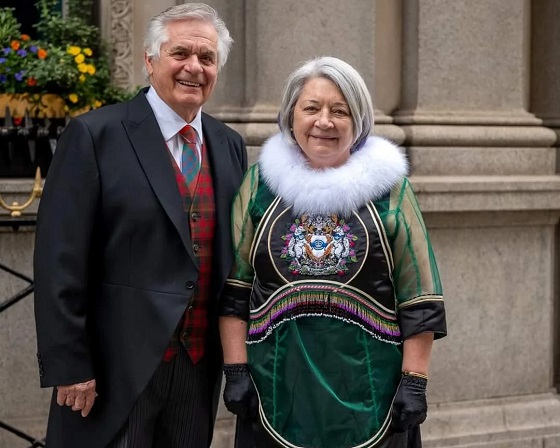
 Business1 day ago
Business1 day agoHow the feds blew your money this week



